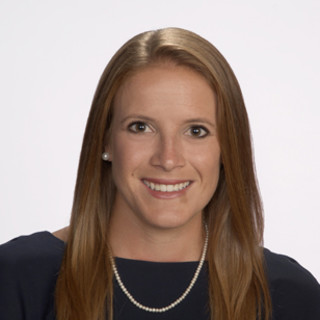
This is part of the Medical Humanities Series on Op-Med, which showcases creative work by our members. Do you have a poem, short story, creative nonfiction or visual art piece related to medicine that you’d like to share with the community? Send it to us here.
'Twas the night before intern year, when all through the house
Young doctors were stirring, reading up on diagnoses they couldn’t pronounce;
With graduation and Match over, the countdown was through;
The time had now come, to start something new.
The new doctors were nestled, all snug in their beds;
While visions of order sets danced in their heads;
Their dress clothes laid out; having been ironed with care
As they dreamed of the long white coat they’d soon wear.
Anxious, excited, and ready to start,
The interns showed up that first morning to do their part.
They logged onto Epic with a few small snafus,
They assigned the attending as RC, who was then quite confused.
They organized to do's and “ran the list.”
Their pagers went off (yes 1980s technology persists).
Soon to be experts in ‘lytes, and bowel reg,
Brigham hold music will be something they dread.
The first day went well; much to the interns' surprise;
“Wow, I think I can do this!” they all surmised.
Nightfall was coming, this much was true.
With the dayshift gone would new juniors know what to do?
And the ‘Phys’ in a ‘kerchief', and I the resident in my cap,
Had just settled our brains for a hopeful quick nap.
When overhead “code blue” rang out with a clatter,
I sprang from my chair to see what was the matter.
Away to the floor I flew like a flash,
The nurse was shouting, “this patient’s gonna crash!”
When what to my wondering eyes should appear,
My co-resident at the bedside and the phys always near.
I took a deep breath, and I entered with haste.
But my pulse it was rushing, my heart how it raced.
My differential — what is it? I need to be thorough!
Thinking back to rapid training made my brow furrow.
I ordered some labs, then added some more.
Doing what I can to keep this patient on the floor.
They don’t have a pulse? Time for the H’s and T’s
What’s going on? What could it be?
The phys with a wink of an eye and a twist of the head
Soon let me know I had nothing to dread;
The phys is whispering, helping me with the plan.
The whole team is working, doing the best that they can.
Pharmacy, phlebotomy, RT — they all came,
The phys whistled; I shouted and called out by name:
"Now, Epi! Compressions! Now Epi again!
Who’s on the pulse? What’s the rhythm my friend?
A shock was given, ROSC was achieved!
ICU was called, MY! I felt so relieved!
Now back to the work room, for the final to do's;
The night’s wrapping up, I’ll pass off in a few.
My first night as resident, with a code nonetheless.
And look I did it — I should trust the process.
The first day is exciting, scary, and new.
It’s ok not to know what exactly to do.
However there’s one thing, that I do know.
At Brigham you never worry alone.
Congrats to new interns and juniors to be.
You’re ready, you’ve got this — what great doctors you’ll be.
What inspired this piece?
Over the past few weeks, the current residents have been helping with orientation for the new interns and the rising junior residents. During these orientation events (which due to Covid have been over Zoom), I reflected back on my experience with each of those transitions. I remember feeling anxious and uncertain of what that first day would hold. I wrote this piece to share with our incoming interns and rising juniors as a way to convey that many of us have similar thoughts and concerns about starting, while also emphasizing that they will be given the resources and support that they need.
Why did you choose this form?
I chose to use a parody of "The Night Before Christmas" as it is a familiar poem that resonates with most people. I wanted to convey the message that they would be capable of handling whatever came their way. Additionally, I wanted to utilize a light-hearted poem that would hopefully end by putting a smile on their faces.
How long have you been writing poetry and how did you get into it? How does it inform your medical practice?
Writing and journaling have been a part of my life since elementary school. I have found journaling (which at times will include poems) to be integral to my practice of medicine. It has helped me to reflect on and deconstruct my experiences in the hospital. It has helped me to grapple with many of the challenges we face on a daily basis. Although usually I write with only myself as the intended audience, I will sometimes share a past piece with someone if I think it will help them if they are currently experiencing a similar situation.
Is there anything else you'd like to share on creative arts and medicine?
Creative arts and humanities are integral to medical education and being a physician. They make us better observers and listeners which in turn allow us to be more empathic physicians. I would encourage all trainees to continue to pursue their interest in creative arts while in residency.
Alicia Corwin, MD, is an internal medicine resident at Brigham and Women's Hospital and Harvard Medical School, who is interested in specializing in gastroenterology. She received her medical degree from Sidney Kimmel Medical College at Thomas Jefferson University and her undergraduate degree from the University of Virginia.
Image: mayrisio / shutterstock







